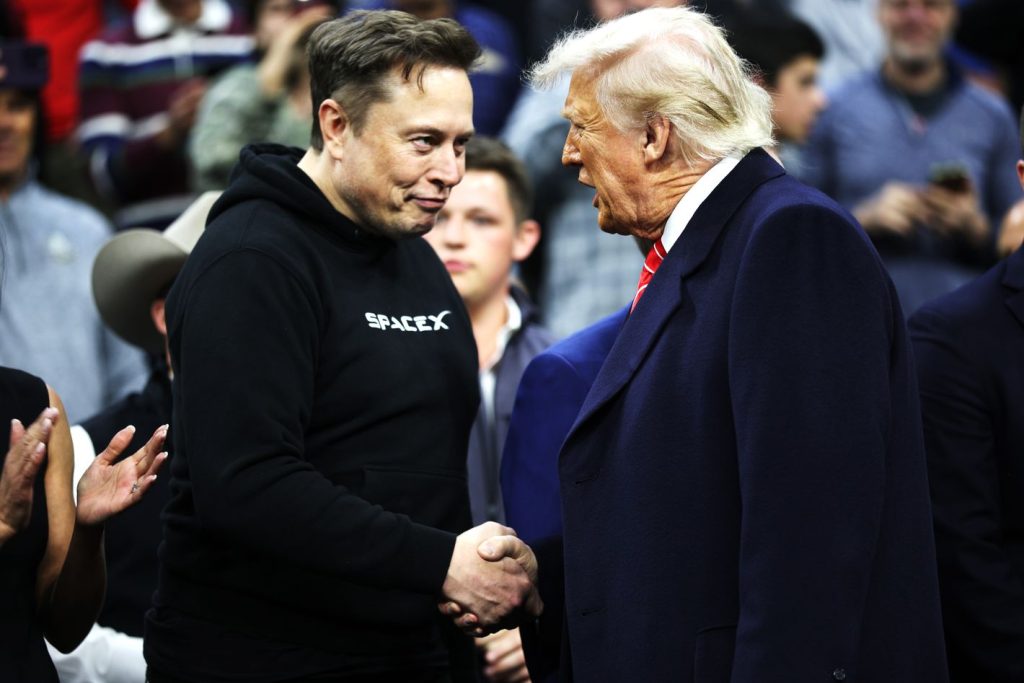Photo: Kayla Bartkowski/Getty Images
Elon Musk’s bizarre reign as head of the Department of Government Efficiency is officially winding down. There are multiple explanations for his growing detachment from the Trump administration, including collisions with Cabinet members, losses in the federal courts, a conspicuous defeat in a Wisconsin special election, and the terrible impact on his companies (particularly Tesla, whose brand has been immeasurably damaged). Above all, there’s DOGE’s poor record on actually promoting “efficiency” in government.
Musk is withdrawing from his once-huge role in the administration because his failures were really beginning to outnumber his successes and his abrasive personality had made him a high-profile villain. He was becoming a political albatross for Donald Trump, and now the president’s efforts to destabilize the “deep state” have shifted to other methods (e.g., congressional legislation, Office of Management and Budget directives, and agencies conducting their own cuts and purges).
For months, many confidently predicted that Musk’s downfall in Washington was assured since he challenged Trump’s preeminence in the administration. The whole “co-presidents” business seemed guaranteed to make Trump jealous and angry. But that doesn’t appear to be what happened at all. The Atlantic reports that the 47th president is still fond of the tech tyro: “He remains close with Trump, who still shows genuine affection for his billionaire benefactor, according to advisers and allies.” Some of that may be attributable to the role Musk’s money and social-media power played in returning Trump to the White House. Although the president never publicly admits 2024 was a close race, it’s possible he might have lost without Musk’s backing.
But there’s another reason the president may feel he owes a lot to Musk: His wild opening assault on the federal government is making the administration’s current actions seem tame by comparison. DOGE is sort of a loss leader for the more sustained demolition work now underway. Musk & Co. softened up the bureaucracy by striking fear into the hearts of civil servants everywhere. He paved the way for more orderly (if no less destructive) budget cuts, program terminations, mass layoffs, grant and contract suspensions, and efforts to eliminate civil-service protections.
It may be a while before we learn with any degree of certainty whether the DOGE initiative, which is unprecedented in the annals of federal executive-branch governance, was planned in advance or simply sprung from Musk’s experience blowing up the companies he owned, wrecked, and rebuilt. There is considerable evidence that OMB’s Russell Vought, the quarterback of Team Trump’s legislative and administrative implementation strategy (under the overall direction, to stretch the metaphor, of offensive coordinator Stephen Miller), got to know Musk well during those crucial postelection moments when Trump 2.0 took shape. So it’s quite possible DOGE was like the first booster stage of a SpaceX rocket, providing a big rush of power and speed but then falling off as the vehicle ascends. With Musk fading from sight, there are now fewer distractions from the hard, cold reality of Trump’s agenda, which will likely survive its challenges in Congress and the courts and profoundly change American government. If that’s the case, the 47th president will continue to owe Musk and his weird band of young techno-pirates a debt of gratitude for getting the whole enterprise going with a loud bang.

